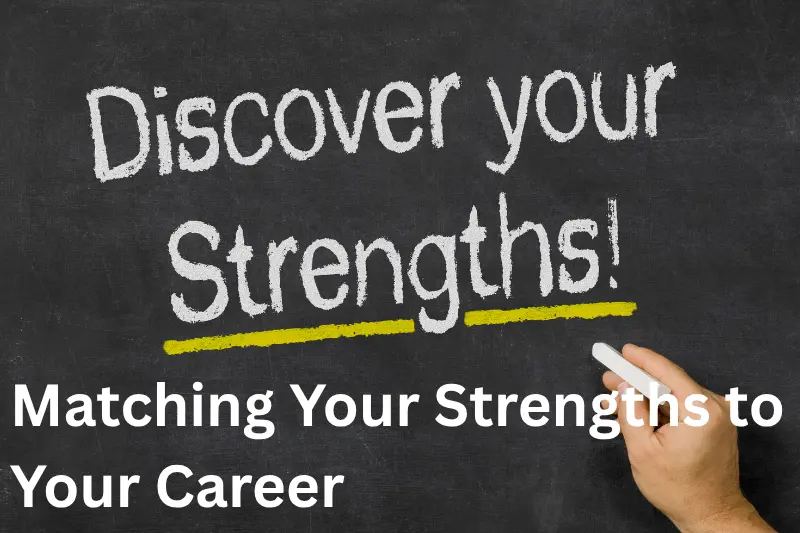Let’s be real for a moment—deciding how to choose the right career path can feel overwhelming, confusing, and even a bit scary. You might be staring at endless choices, wondering which one is “right” for you, or feeling anxious about making a decision that could shape your entire future. Some of your friends might already seem to have their lives figured out—they know what they want to study, where they want to work, and what goals they’re chasing. And then there’s you, sitting there thinking, “What if I pick the wrong path?” Don’t worry, you’re not alone in this. Almost everyone goes through this phase at some point. Whether you’re a student standing at the edge of your next big decision or someone already in a job but feeling lost or unfulfilled, that uncertainty you’re feeling is completely normal. The truth is, your career isn’t just about making money or landing a job—it’s about finding something that aligns with your purpose, something that feels meaningful, and something that makes you want to show up every day with enthusiasm. The good news? You don’t have to have it all figured out right now. This journey is about exploring, reflecting, and learning what fits you best. So, let’s have a real talk about how you can make this decision with more clarity and confidence, step by step, like two friends helping each other navigate life.
Understanding What “Right Career” Really Means

When people say “find the right career,” it often sounds like there’s one perfect job out there waiting for you—but that’s not how it works. The “right” career isn’t some magical discovery; it’s a choice that grows and evolves with you over time. Think of it like finding a good pair of shoes. You might try a few before finding the one that fits comfortably, and even then, your needs can change. A right career fits your skills, aligns with your interests, supports your lifestyle, and helps you grow as a person. It’s about finding balance between what you love, what you’re good at, and what the world needs. Don’t chase perfection; instead, look for progress. You’ll probably tweak your path along the way—and that’s perfectly fine because growth is part of the process.
Why Choosing the Right Career Path Matters
Your career choice affects more than just your paycheck. It influences your mental health, motivation, self-esteem, and even your personal relationships. When you work in a field that matches your strengths and values, you’re more likely to feel happy, productive, and fulfilled. On the other hand, if your work feels like a constant struggle, it can drain your energy and make you question your purpose. Choosing wisely doesn’t mean avoiding challenges—it means finding a direction that feels worth your effort. It’s about creating a future where work doesn’t feel like a chore but an extension of who you are.
You may also like to read these articles
Unlock Your Potential with the Best Skill Development Courses Online
Unlock Your Potential with Practical Skill Development Programs
Unlock Future Success with Skill Development for Students
Transform Your Career with Expert Professional Skill Building Tips
Unlock Your Confidence: how to improve communication skills Fast
Self-Discovery: The Foundation of Clarity
Before you explore career options, you need to understand yourself better. This step may sound simple, but it’s actually the key to making a confident choice. Take some time to reflect on your personality, interests, values, and goals. Ask yourself: What kind of activities make me lose track of time? Do I enjoy working with people or independently? What kind of problems do I like solving? What are the things I can’t imagine not doing? These questions help you uncover your natural inclinations and preferences. Self-awareness is the compass that guides your choices. Without it, you might chase careers that look good on paper but don’t actually fulfill you. So before you look outward at job markets, look inward at what makes you come alive.
Matching Your Strengths to Your Career

Every person has unique strengths that can point toward the right career path. Maybe you’re naturally analytical, empathetic, creative, or organized. Once you identify what you’re good at, you can align those strengths with specific careers. For example, if you’re detail-oriented and enjoy solving problems, you might thrive in data analysis, research, or engineering. If you’re outgoing and love connecting with people, you might fit in teaching, marketing, or public relations. The trick is to notice where your natural talents and your joy intersect. That’s where potential magic happens. A career that uses your strengths will not only make you feel more confident but also help you stand out and excel faster.
Exploring Your Passions and Interests
Passion isn’t just a buzzword—it’s fuel. It’s what keeps you going when challenges arise. But here’s the truth: not everyone discovers their passion right away, and that’s okay. Sometimes, passion grows from curiosity. Start by asking yourself what topics or activities you love learning about. What kind of problems do you feel drawn to solve? What would you still do even if no one paid you? Passion doesn’t always scream; sometimes it whispers. Keep an open mind and explore different things. You might stumble upon something unexpected that feels just right.
Researching Career Options
Once you understand your strengths and passions, start exploring careers that match them. Research is your best friend here. Don’t just look at job titles; dig deeper into what those roles actually involve. Read about different industries, watch interviews with professionals, and check job descriptions online to see what skills are required. The more you learn, the easier it becomes to picture yourself in certain roles. Networking can also help—talk to people who work in fields you’re curious about. Ask them what they love about their job and what challenges they face. Real-world insights are worth more than generic advice.
The Role of Education and Skill Building
Let’s face it—education matters, but it’s not the only thing that determines your success. Your willingness to learn and adapt will take you further than any degree alone. In today’s world, careers are changing fast, and new opportunities pop up every year. What keeps you relevant is your skill set. Invest time in learning new things. You can take online courses, attend workshops, or even self-learn through tutorials. Focus on both technical skills and soft skills. Technical skills help you perform specific tasks, while soft skills like communication, problem-solving, and teamwork make you effective in any role. Keep your learning mindset alive—it’s your most valuable career asset.
Gaining Experience and Testing the Waters
You’ll never truly know if a career fits you until you experience it firsthand. Try internships, part-time jobs, volunteering, or freelancing in your field of interest. These opportunities give you a realistic understanding of what the job is like day-to-day. Sometimes you’ll confirm that you love it; other times you’ll realize it’s not for you—and that’s equally valuable. Every experience, even the ones that don’t work out, helps you refine your path. Think of this stage as collecting clues about what your ideal career looks like.
Seeking Guidance and Mentorship
You don’t have to figure this all out alone. Talking to someone with experience can make the process less confusing. Mentors, teachers, or professionals in your desired industry can offer advice, share their journeys, and help you avoid common mistakes. A mentor isn’t there to tell you exactly what to do but to give you perspective and guidance. Sometimes, one meaningful conversation can shift your entire direction. Don’t hesitate to reach out—most people love sharing their stories and helping others grow.
Balancing Passion with Practicality
While following your heart is important, practicality also matters. The best career is one that balances your interests with financial stability and opportunities for growth. Passion without direction can lead to burnout, and practicality without purpose can lead to unhappiness. Find the middle ground where your passion meets a real-world need. Ask yourself: Does this career allow me to live comfortably? Can I see myself doing this for years without feeling trapped? Is there room to grow? Remember, you can be passionate and practical at the same time—it’s not one or the other.
Overcoming Fear and Doubt
One of the biggest challenges in choosing a career is fear—the fear of failure, judgment, or regret. It’s natural to worry about making the wrong choice, but fear shouldn’t control your future. No one gets it perfectly right from the start. Every successful person has taken wrong turns before finding their way. What matters is that you start. Taking action, even small steps, builds confidence and clarity. If something doesn’t work out, it’s not a failure—it’s a lesson. Life isn’t a straight line; it’s a series of adjustments that lead you to where you’re meant to be.
Creating a Career Action Plan
Once you have a clearer picture, turn your dreams into an actionable plan. Start by listing your top career options and identifying what qualifications or skills you need for each. Then, create short-term goals that move you closer to them. It could be enrolling in a course, attending a networking event, or building a portfolio. Make a timeline to track your progress. Plans make your goals feel real and manageable. Don’t wait for the “perfect time” because it doesn’t exist. The best time to start building your future is now.
Staying Flexible and Open-Minded
Here’s something important—your first career choice doesn’t have to be your final one. The world changes, industries evolve, and people grow. What you love today might shift over time, and that’s perfectly fine. Staying flexible keeps you open to new opportunities and helps you adapt when life throws surprises your way. Don’t see career changes as failures; see them as evolution. Each step, even if it seems like a detour, adds experience and wisdom to your journey. The more open you are to learning and adjusting, the stronger and happier your career journey will be.
Conclusion
At the end of the day, choosing how to choose the right career path isn’t about finding one magical answer. It’s about understanding yourself, exploring possibilities, and taking small, thoughtful steps toward something that feels meaningful. There’s no need to rush or compare your path with anyone else’s. You’re on your own timeline. Be patient with yourself and trust that clarity comes with time and experience. The most successful people aren’t those who got it right immediately—they’re the ones who kept learning, growing, and adapting along the way. You’ve got everything you need to make this decision: curiosity, courage, and the willingness to keep moving forward. So take that first step today, even if it’s small, because every little effort brings you closer to the career—and life—you’re meant to have.
Actionable Checklist
- Reflect deeply on your values, strengths, and interests.
- Research different career paths and learn from real people in those roles.
- Try internships, side projects, or volunteering to test your options.
- Keep upgrading your skills and stay adaptable to change.
- Believe in your journey and don’t fear making adjustments along the way.
FAQs
Why is it important to know how to choose the right career path
Choosing the right career path helps you align your goals, interests, and strengths with your work, leading to long-term satisfaction and success.
What factors should I consider when learning how to choose the right career path
Consider your skills, passions, personality, lifestyle goals, and market demand to find a career that fits both your interests and opportunities.
Can personality tests really help in how to choose the right career path
Yes, personality tests can offer insights into your strengths and preferences, helping you identify careers that align with who you truly are.
How can I overcome confusion about how to choose the right career path
Start by exploring different fields, talking to mentors, and gaining experience through internships or volunteering to discover what suits you best.
What mistakes should I avoid while learning how to choose the right career path
Avoid following trends blindly, ignoring your interests, or choosing a path solely for money. Focus on what motivates and fulfills you long term.





